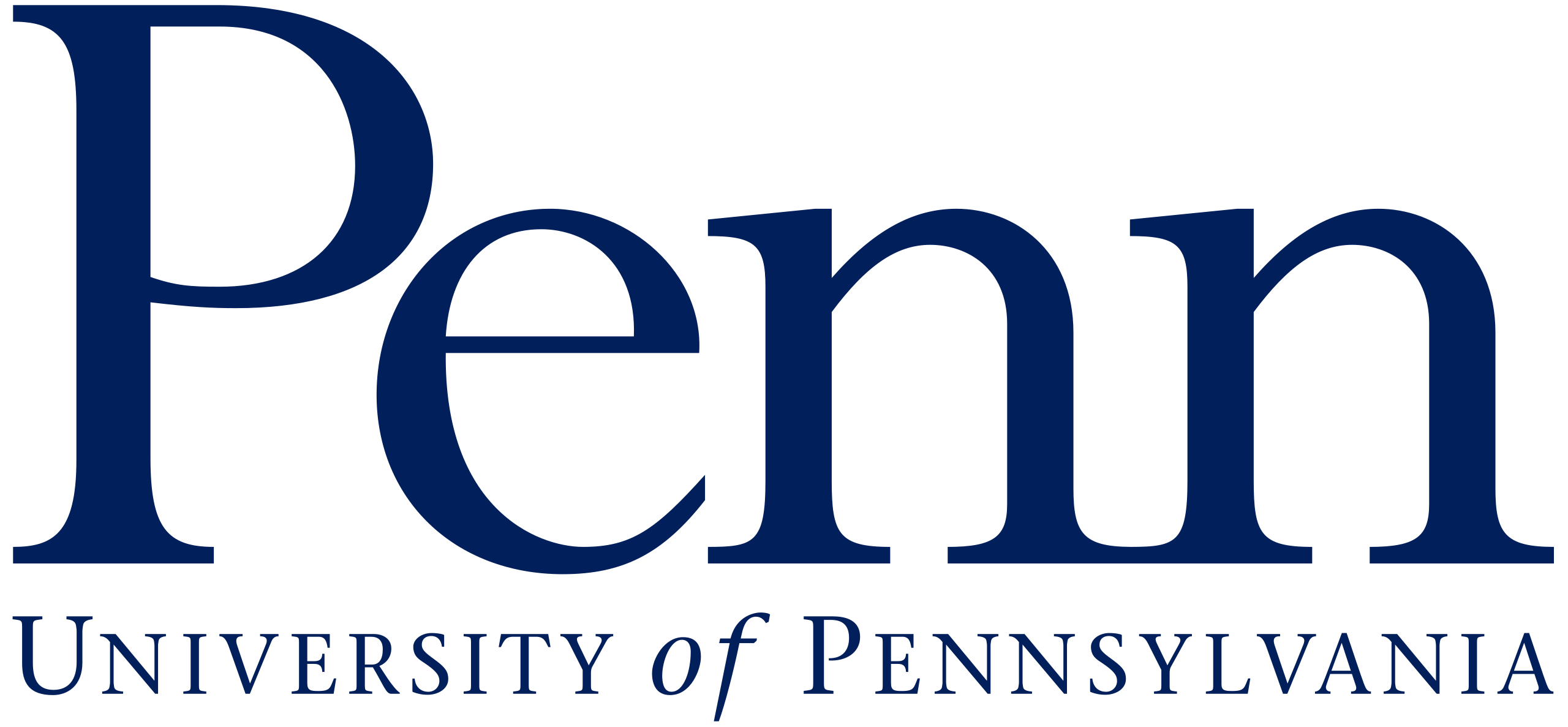
Welcome to the Han Lab
At Han Lab, we drive the next generation of medical artificial intelligence to elevate human expertise to a global scale. Our mission is to build powerful AI and machine learning systems that redefine diagnosis, accelerate discovery, and improve patient outcomes. By uniting breakthroughs in algorithmic innovation, massive multimodal data integration, and clinically validated impact studies, we aim to transform the practice of radiology, emergency medicine, and the broader landscape of precision healthcare.
Apply to Join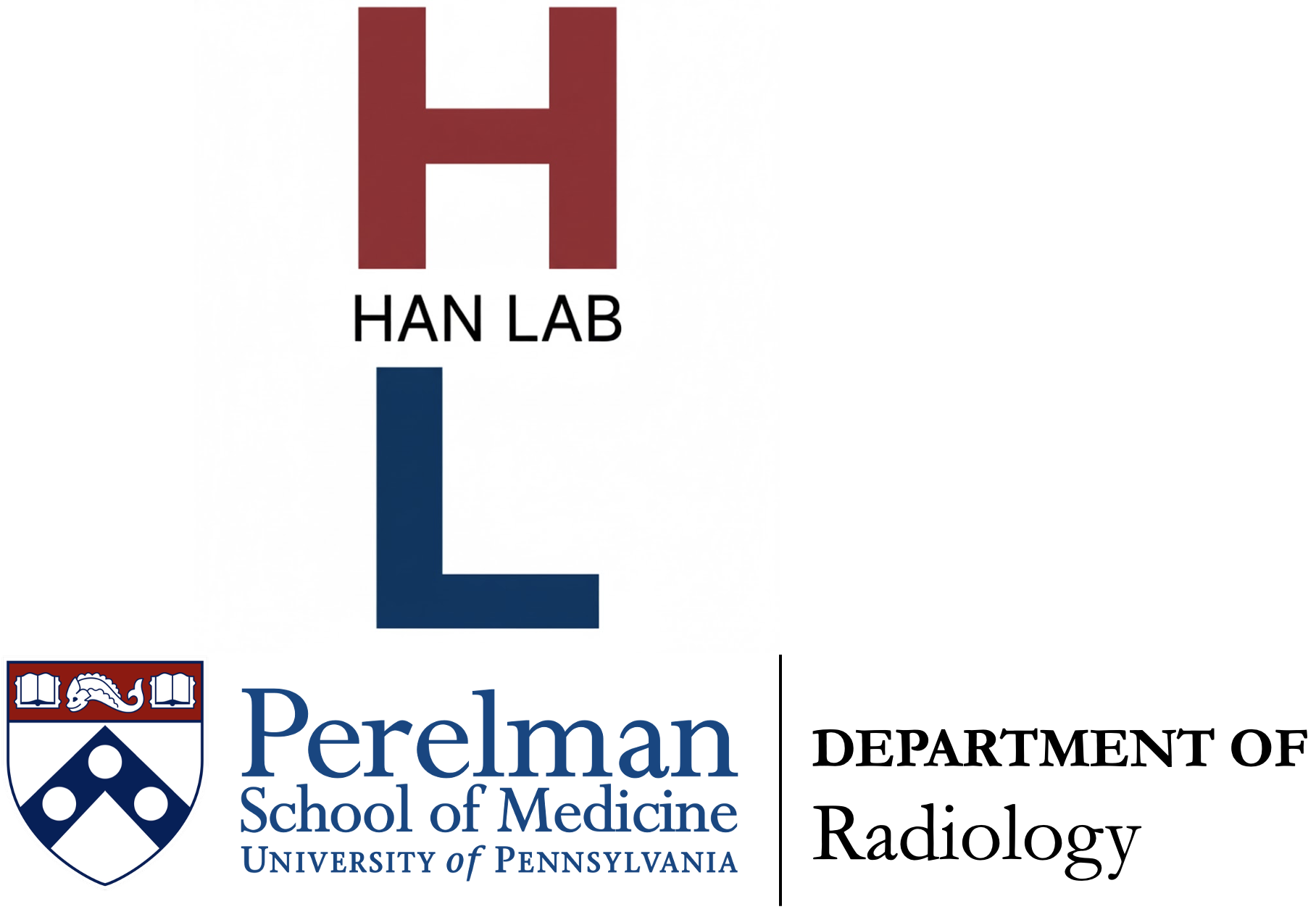
Lab Members
- Prof. Tianyu Han · Principal Investigator
- Dr. Haifan Gong · Postdoctoral Fellow
- Dr. Yuqi Wang · Postdoctoral Fellow
- Akis Giannoukos · Intern
- Meera Desikan · Intern
- Jessica Incmikoski · Coordinator
- + Join the Lab
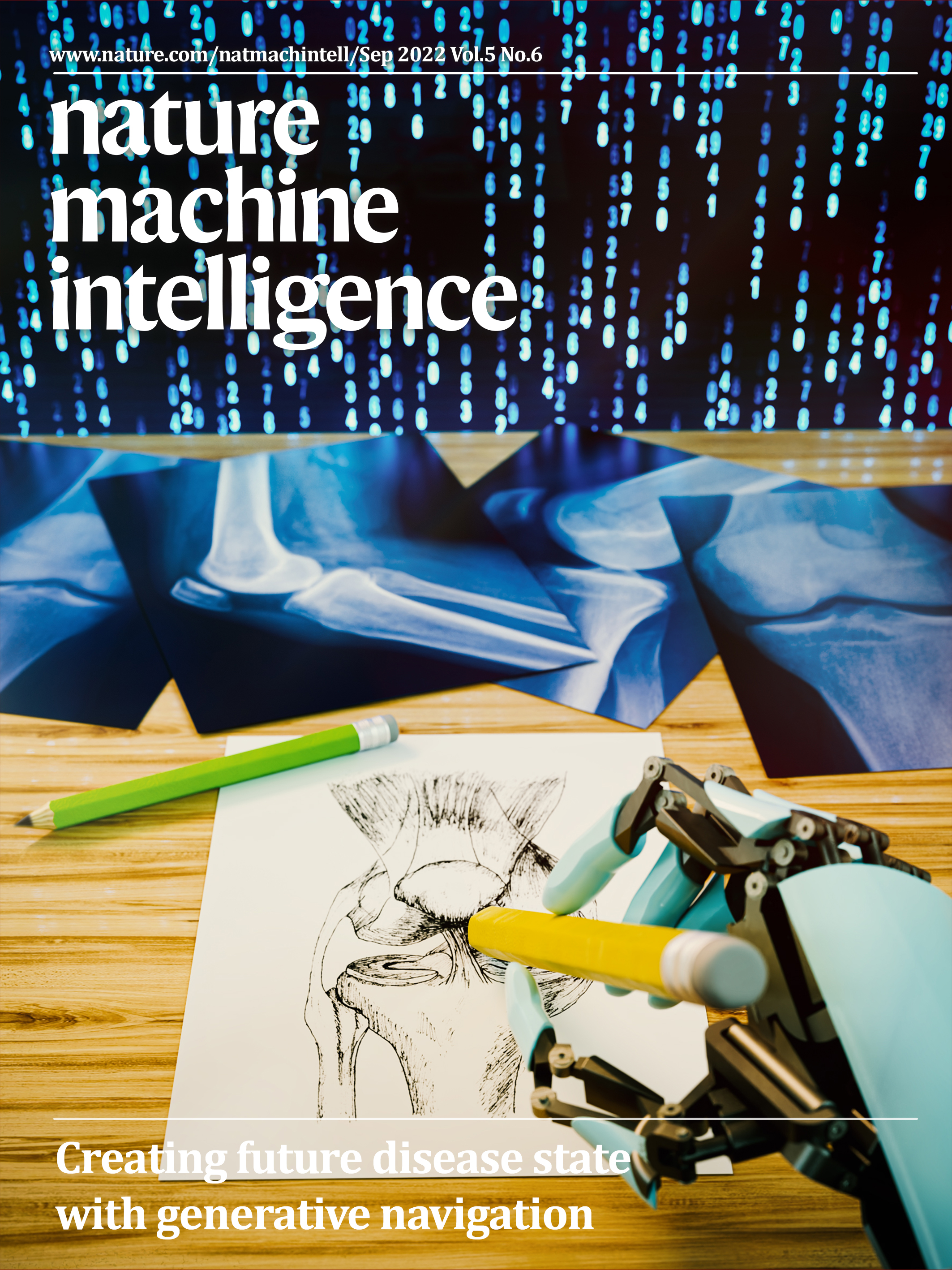
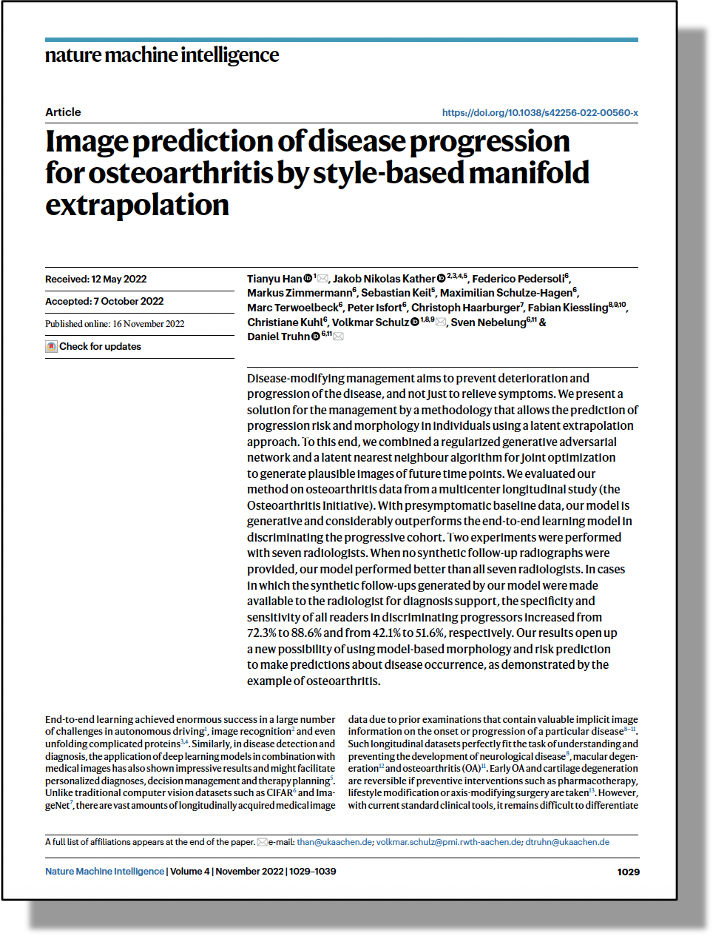
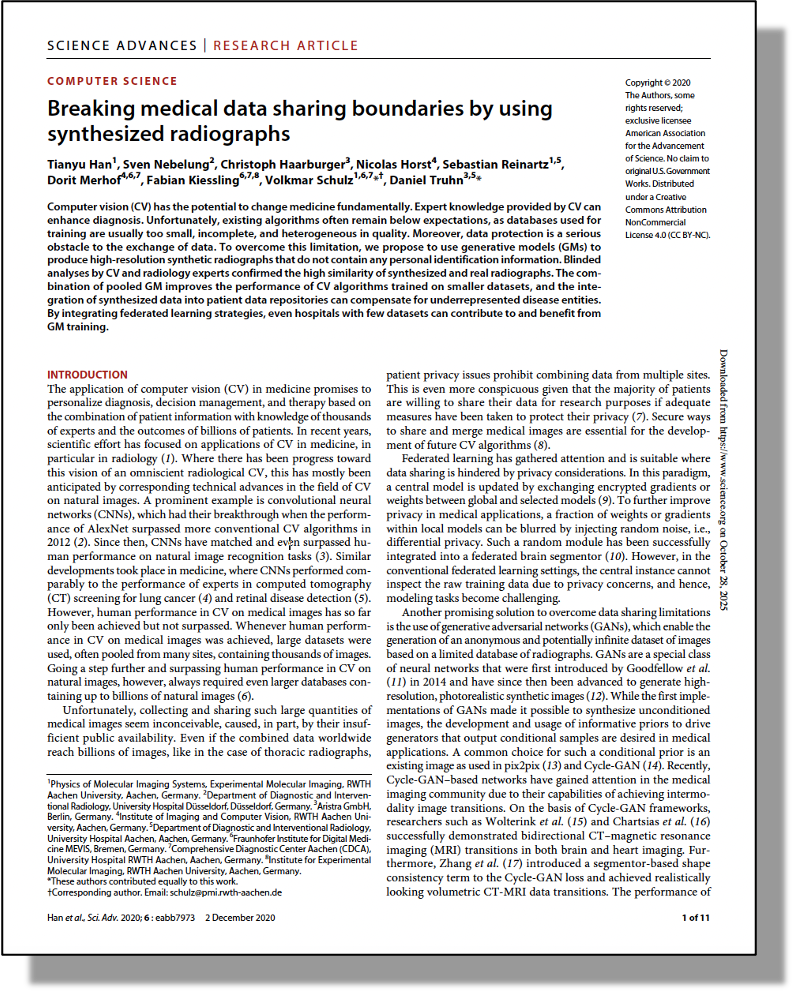

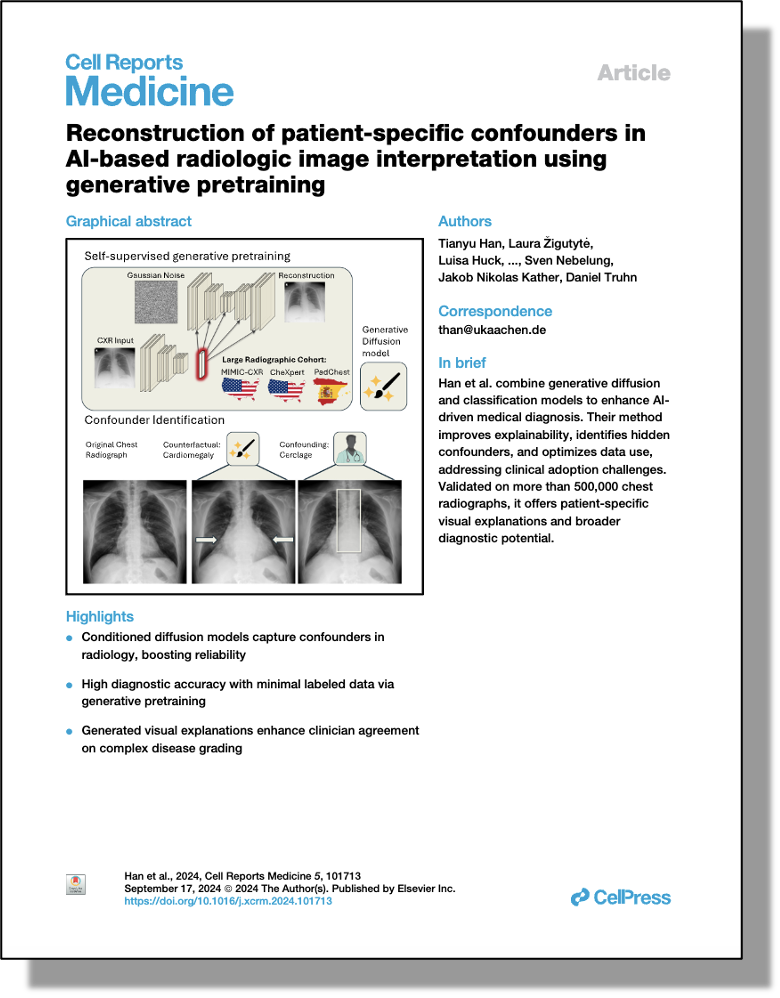
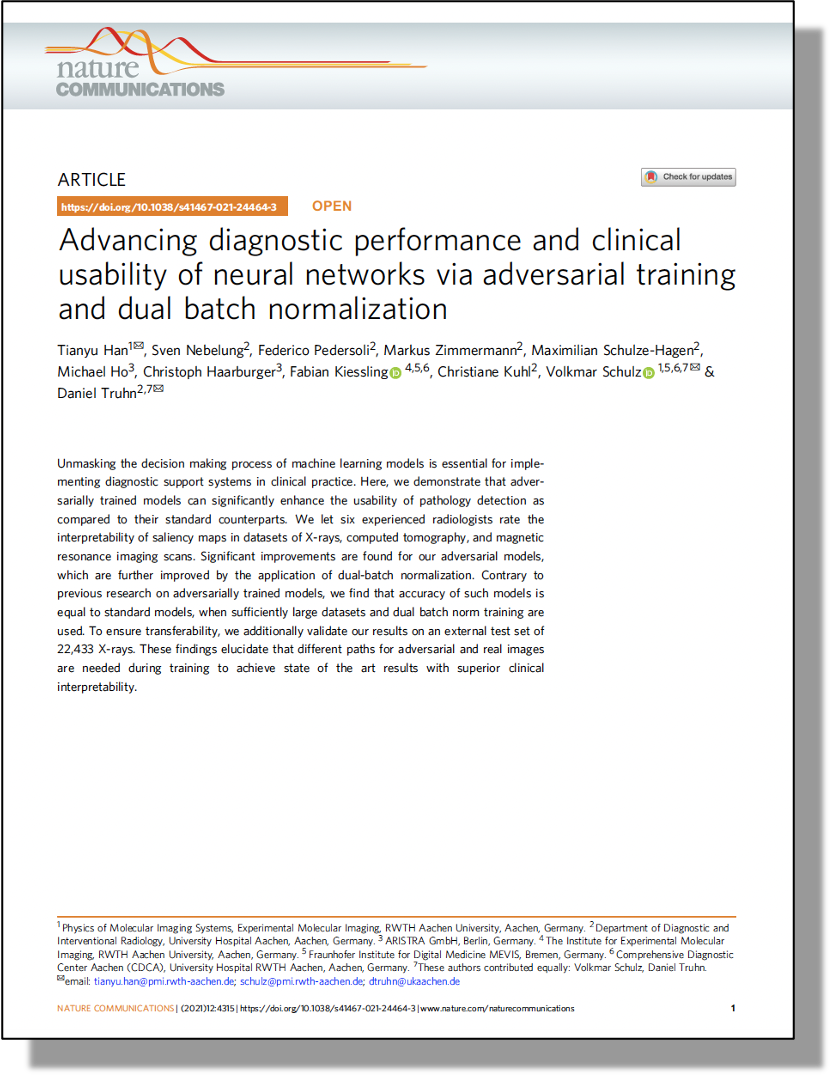
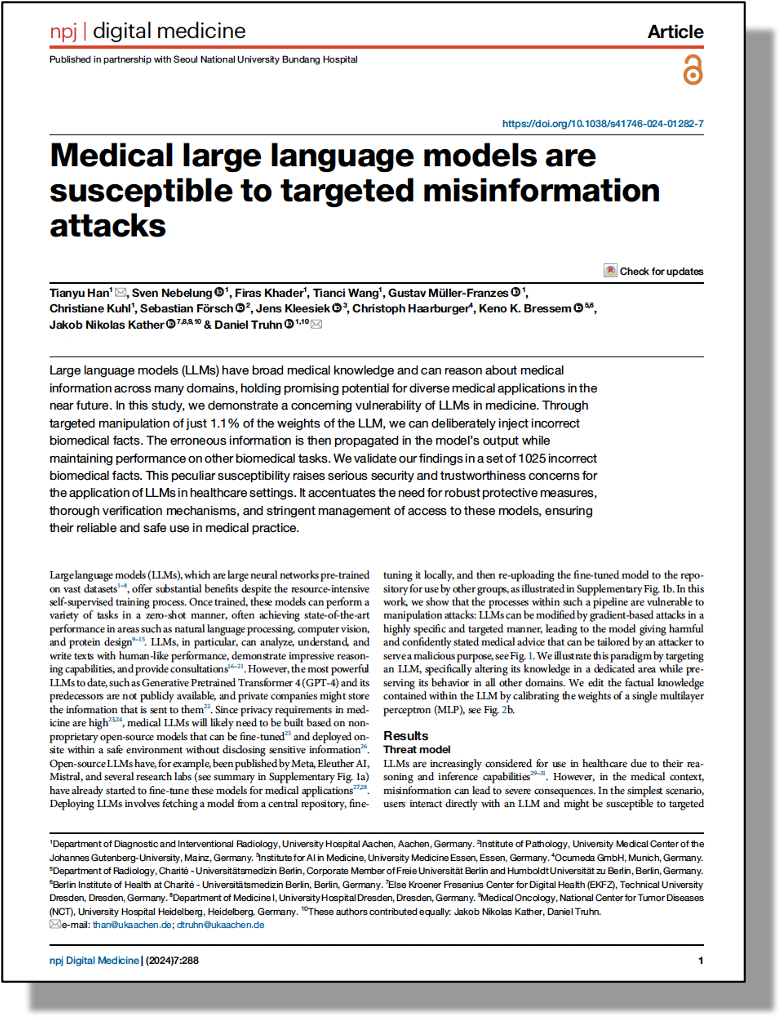
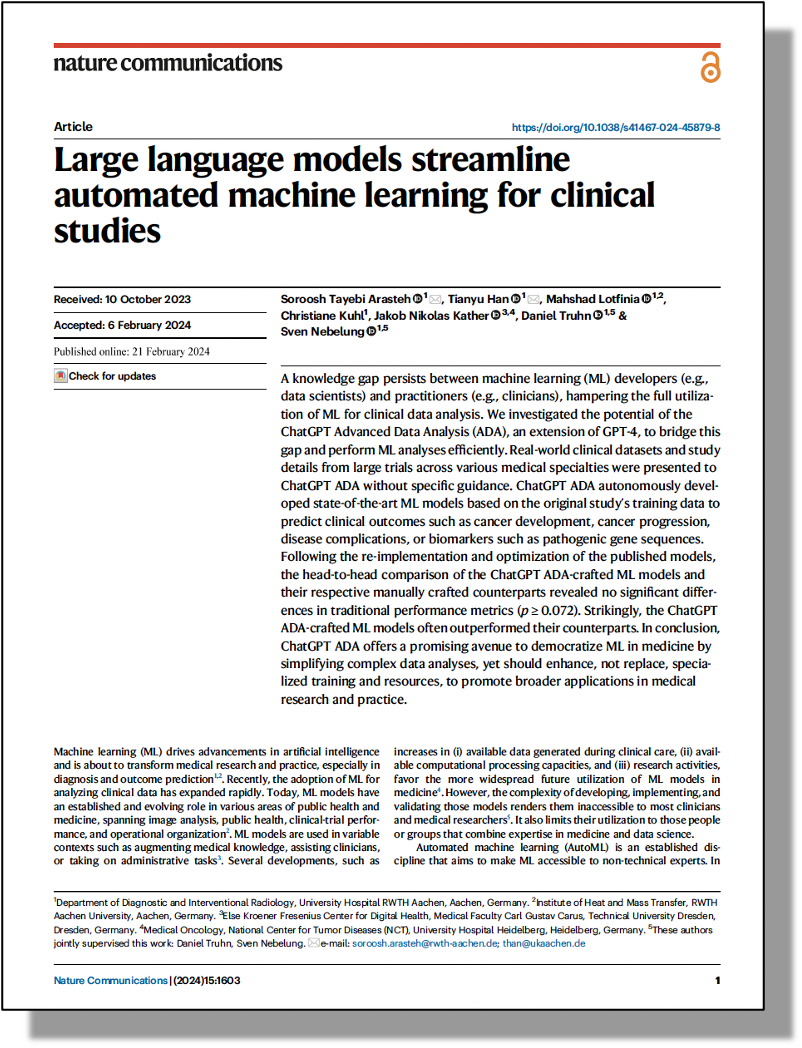
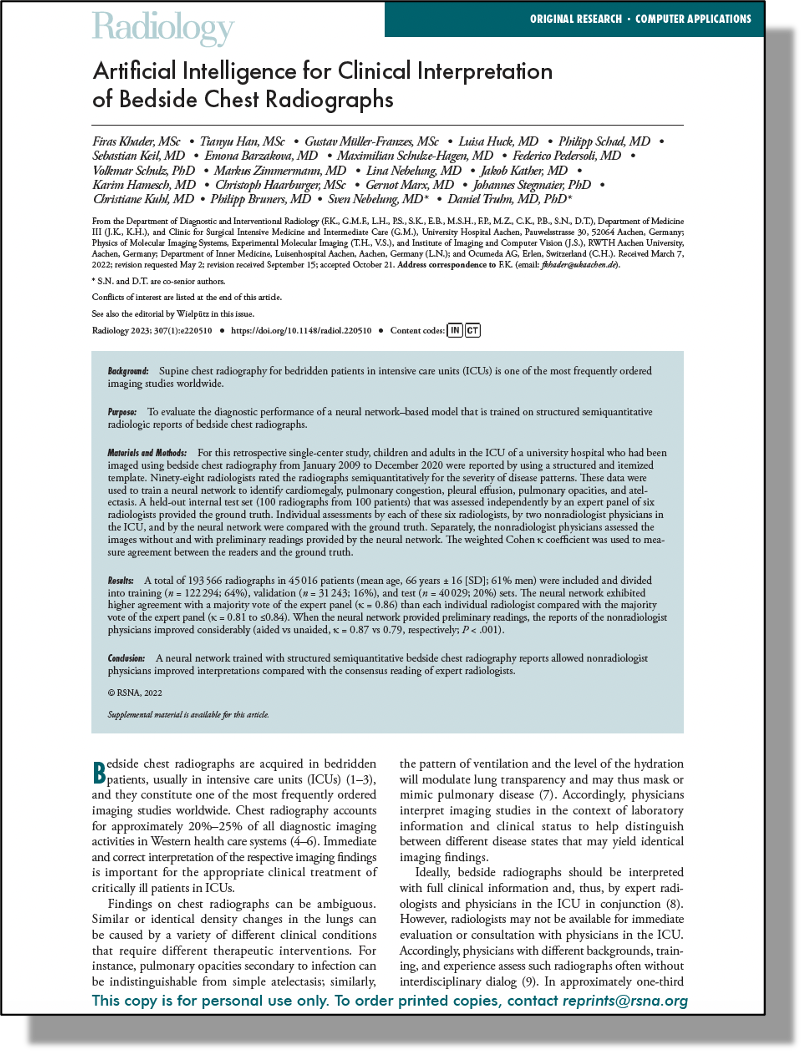
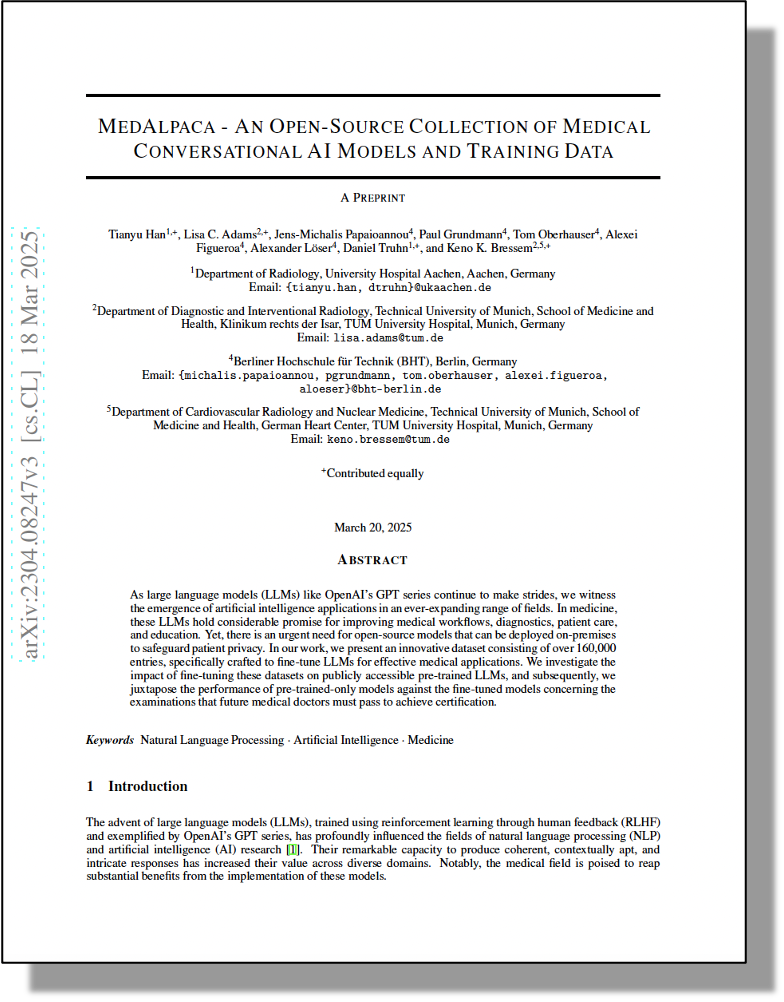
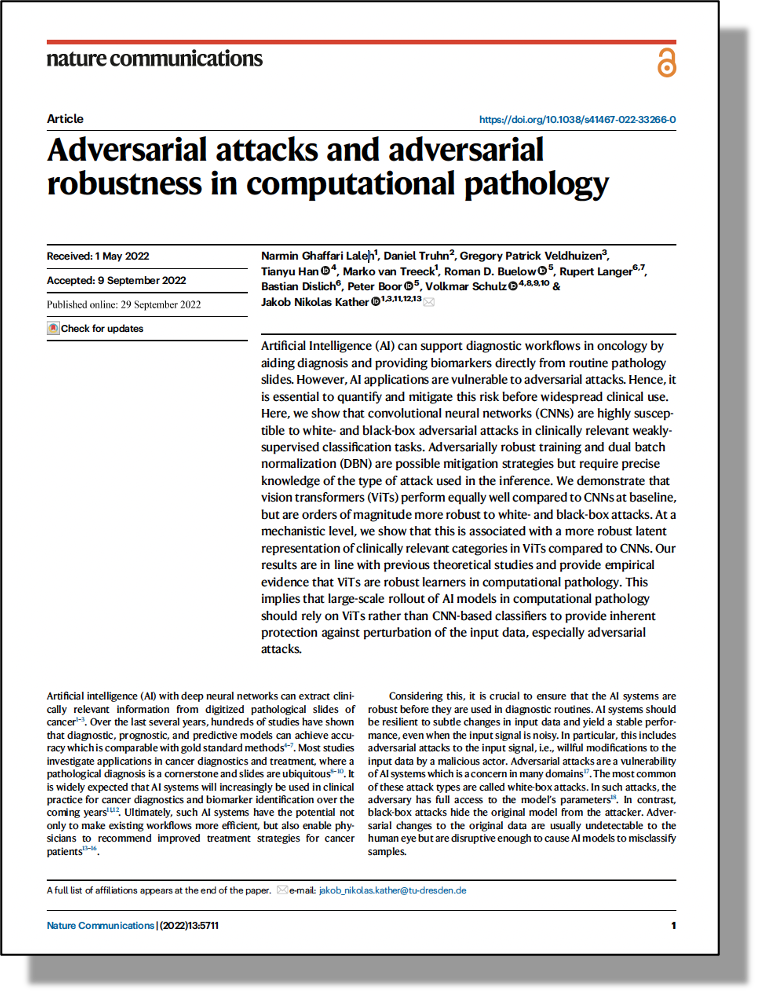


Research
Our group leads the development of next-generation Generative and Agentic Medical AI systems that reason like clinicians, integrate diverse data modalities, and communicate seamlessly through images and language.
Generative AI
My research develops generative models that provide clinicians with predictive insights to support medical decision-making. I introduced DiffChest (Han, Cell Rep Med 24), a self-conditioned diffusion model trained on large-scale patient data to generate patient-specific counterfactuals and identify confounding factors, thereby improving the robustness and interpretability of AI systems. In parallel, I leveraged generative adversarial networks to address key challenges in prediction (Han, Nature Mach Intell 22) and data sharing (Han, Sci Adv 20). A generative model-based framework I developed predicts osteoarthritis progression by synthesizing future radiographs, achieving accuracy surpassing radiologists up to eight years in advance (Han, Nature Mach Intell 22). I also proposed generating high-resolution synthetic medical images to preserve privacy while enhancing model performance and data diversity through synthetic augmentation of underrepresented disease profiles (Han, Sci Adv 20).
Agentic AI
We develop medical large language models that integrate visual and textual reasoning to support clinical decision-making. In collaboration with Charité - Berlin University Medicine, I co-developed MedAlpaca (Han, arxiv 23), an open-source LLM fine-tuned on the Medical Meadow dataset of ~900,000 medical QA pairs, achieving significant gains in clinical accuracy. I also evaluated GPT-4V on NEJM and JAMA cases (Han, JAMA 24), showing superior multimodal reasoning, and co-led a Nature Communications study demonstrating GPT-4's ability to autonomously build ML models from raw clinical trial data (Tayebi Arasteh, Nature Comm 24). Our ongoing work focuses on developing agentic systems for automated diagnosis using multimodal EHR data in emergency medicine and for cancer biomarker discovery through integrative imaging-genomic modeling.
Interpretable & Robust Medical AI
We study the vulnerabilities and ethical challenges of AI in medicine, focusing on misinformation and adversarial robustness. Our work showed that altering just 1% of an LLM's parameters can implant false biomedical knowledge, underscoring risks in AI-generated medical advice (Han, NPJ Digital Med 24). We further demonstrated that while CNNs are highly vulnerable to adversarial attacks in pathology (Han, Nature Comm 21), vision transformers (ViTs) exhibit markedly greater robustness. Extending this analysis (Ghaffari Laleh, Nature Comm 22), we revealed that even diffusion-based MRI reconstruction models remain susceptible to subtle k-space perturbations that can produce misleading anatomical artifacts (Han, MICCAI 24).
Get Involved
Join our mission to advance AI-driven solutions in medicine through collaboration, support, or by applying to join the group.
Students: We welcome applicants from CS, engineering, and medicine. See openings.
Collaborations: We partner with clinicians, institutions, and industry. Reach out using the form.